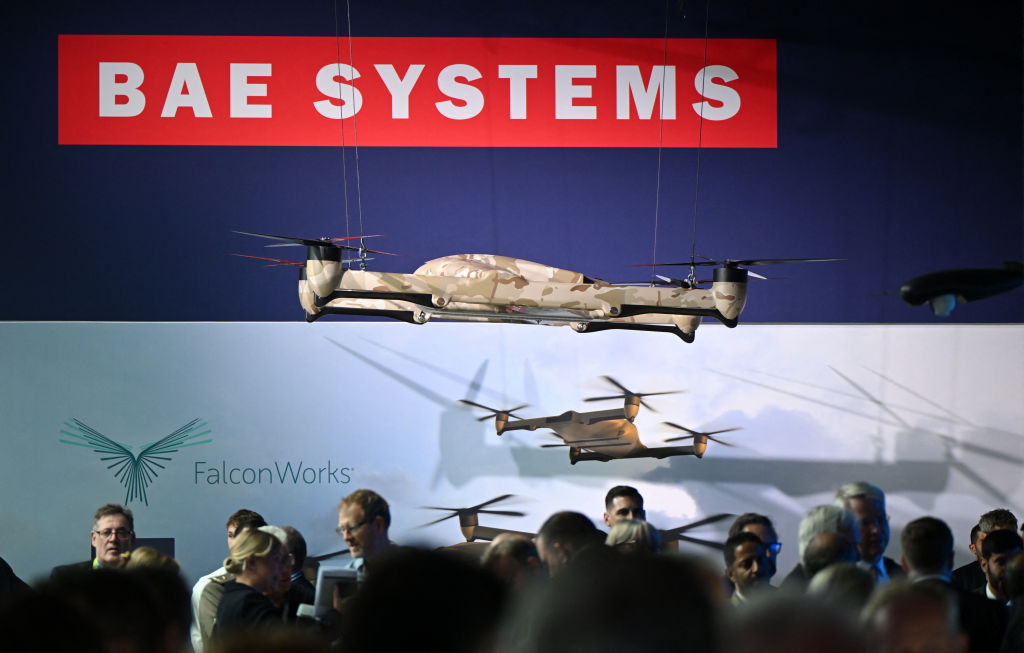
Get the latest financial news, insights and expert analysis from our award-winning MoneyWeek team, to help you understand what really matters when it comes to your finances.
You are now subscribed
Your newsletter sign-up was successful
Want to add more newsletters?

Twice daily
MoneyWeek
Get the latest financial news, insights and expert analysis from our award-winning MoneyWeek team, to help you understand what really matters when it comes to your finances.

Four times a week
Look After My Bills
Sign up to our free money-saving newsletter, filled with the latest news and expert advice to help you find the best tips and deals for managing your bills. Start saving today!
When thinking of international business successes, it's unlikely that the name “Marconi” is in anyone's mind. After all, Marconi Plc, the telecoms company and successor to GEC, imploded spectacularly after the dot-com bubble, after a series of disastrous management decisions. But there was another Marconi – Marconi Electronic Systems – that had been spun off from GEC and went on to form half of one of the world's biggest arms manufacturers (or defence companies, if you prefer).
The last years of the 20th century saw huge consolidation in the defence industry. Boeing and McDonnell Douglas merged, and Lockheed Martin was formed by the merger of Lockheed and Martin Marietta. Europe had designs on a consolidated defence company of its own, which eventually became EADS, then Airbus.
Britain was not to be left out. We had our own defence and aerospace companies in British Aerospace (BAe), which, as the name implied, built planes. Marconi built radar and other electronic systems for the space and naval sectors. BAe was considering a merger with Germany's Daimler Chrysler Aerospace. But when GEC put Marconi up for sale, BAe feared it would be acquired by a US company and pose a threat.
MoneyWeek
Subscribe to MoneyWeek today and get your first six magazine issues absolutely FREE

Sign up to Money Morning
Don't miss the latest investment and personal finances news, market analysis, plus money-saving tips with our free twice-daily newsletter
Don't miss the latest investment and personal finances news, market analysis, plus money-saving tips with our free twice-daily newsletter
And so on this day in 1999, British Aerospace and Marconi Electronic Systems merged, in a £7.7bn deal, and BAE Systems was formed. It makes everything from fighter jets to tanks and warships and became Europe's biggest defence company.
Sales have risen by over 12% for the company in 2024, while its current order book amounts to £25billion.
Among world arms companies it is the seventh biggest in terms of sales, according to Defence News. It falls behind Lockheed Martin, the Aviation Industry Corporation of China, RTX, Northrop Grumman, General Dynamics and Boeing.
Get the latest financial news, insights and expert analysis from our award-winning MoneyWeek team, to help you understand what really matters when it comes to your finances.

-
 Can mining stocks deliver golden gains?
Can mining stocks deliver golden gains?With gold and silver prices having outperformed the stock markets last year, mining stocks can be an effective, if volatile, means of gaining exposure
-
 8 ways the ‘sandwich generation’ can protect wealth
8 ways the ‘sandwich generation’ can protect wealthPeople squeezed between caring for ageing parents and adult children or younger grandchildren – known as the ‘sandwich generation’ – are at risk of neglecting their own financial planning. Here’s how to protect yourself and your loved ones’ wealth.
-
 31 August 1957: the Federation of Malaya declares independence from the UK
31 August 1957: the Federation of Malaya declares independence from the UKFeatures On this day in 1957, after ten years of preparation, the Federation of Malaya became an independent nation.
-
 13 April 1960: the first satellite navigation system is launched
13 April 1960: the first satellite navigation system is launchedFeatures On this day in 1960, Nasa sent the Transit 1B satellite into orbit to provide positioning for the US Navy’s fleet of Polaris ballistic missile submarines.
-
 9 April 1838: National Gallery opens in Trafalgar Square
9 April 1838: National Gallery opens in Trafalgar SquareFeatures On this day in 1838, William Wilkins’ new National Gallery building in Trafalgar Square opened to the public.
-
3 March 1962: British Antarctic Territory is created
Features On this day in 1962, Britain formed the British Antarctic Territory administered from the Falkland Islands.
-
10 March 2000: the dotcom bubble peaks
Features Tech mania fanned by the dawning of the internet age inflated the dotcom bubble to maximum extent, on this day in 2000.
-
9 March 1776: Adam Smith publishes 'The Wealth of Nations'
Features On this day in 1776, Adam Smith, the “father of modern economics”, published his hugely influential book The Wealth of Nations.
-
 8 March 1817: the New York Stock Exchange is formed
8 March 1817: the New York Stock Exchange is formedFeatures On this day in 1817, a group of brokers moved out of a New York coffee house to form what would become the biggest stock exchange in the world.
-
7 March 1969: Queen Elizabeth II officially opens the Victoria Line
Features On this day in 1969, Queen Elizabeth II took only her second trip on the tube to officially open the underground’s newest line – the Victoria Line.
